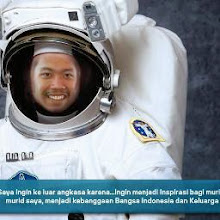Working scientists usually take for granted a set of basic assumptions that are needed to justify the scientific method:
(1) that there is an objective reality shared by all rational observers;
(2) that this objective reality is governed by natural laws;
(3) that these laws can be discovered by means of systematic observation and experimentation.
Philosophy of science seeks a deep understanding of what these underlying assumptions mean and whether they are valid.
The belief that all observers share a common reality is known as realism. It can be contrasted with anti-realism, the belief that there is no valid concept of absolute truth such that things that are true for one observer are true for all observers.
The most commonly defended form of anti-realism is idealism, the belief that the mind or consciousness is the most basic essence, and that each mind generates its own reality.
In an idealistic world-view, what is true for one mind need not be true for other minds.
There are different schools of thought in philosophy of science.
The most popular position is empiricism, which claims that knowledge is created by a process involving observation and that scientific theories are the result of generalizations from such observations.
Empiricism generally encompasses inductivism, a position that tries to explain the way general theories can be justified by the finite number of observations humans can make and the hence finite amount of empirical evidence available to confirm scientific theories.
This is necessary because the number of predictions those theories make is infinite, which means that they cannot be known from the finite amount of evidence using deductive logic only. Many versions of empiricism exist, with the predominant ones being bayesianism and the hypothetico-deductive method.
Empiricism has stood in contrast to rationalism, the position originally associated with Descartes, which holds that knowledge is created by the human intellect, not by observation.
A significant 20th-century version of rationalism is critical rationalism, first defined by Austrian-British philosopher Karl Popper.
Popper rejected the way that empiricism describes the connection between theory and observation.
He claimed that theories are not generated by observation, but that observation is made in the light of theories and that the only way a theory can be affected by observation is when it comes in conflict with it.
Popper proposed falsifiability as the landmark of scientific theories, and falsification as the empirical method, to replace verifiability and induction by purely deductive notions.
Popper further claimed that there is actually only one universal method, and that this method is not specific to science: The negative method of criticism, trial and error.
It covers all products of the human mind, including science, mathematics, philosophy, and art.
Sumber:
Wikipedia























